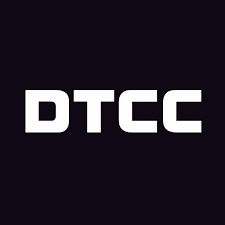 Tokenized securities are here to stay and, acknowledging that reality, the Depository Trust & Clearing Corporation (DTCC) has decided to outline function-based guiding principles for regulators and market participants for the post-trade processing of tokenized securities in a recently published white paper.
Tokenized securities are here to stay and, acknowledging that reality, the Depository Trust & Clearing Corporation (DTCC) has decided to outline function-based guiding principles for regulators and market participants for the post-trade processing of tokenized securities in a recently published white paper.
The need for safety, security, and reliability around these transactions have led DTCC to take a stand in order to protect stability in a market where the post-trade processing is starting to use distributed ledger technology (DLT). Token securitization could eventually make post-trade processing intermediaries, such as DTCC, a thing of the past, as the process using distributed ledger dramatically cuts out costly steps and processes in traditional markets, such as bonds and equities.
Mark Wetjen, Managing Director, Head of Global Public Policy, DTCC, and Chairman of the Board, commented: “When most people think of markets and the trading of an asset, usually they are focused on what happens before or to the point of execution of a trade. But what occurs after a trade is executed is critically important, and this issue has not been broadly discussed within the context of tokenized securities or crypto assets more generally. The framework DTCC has developed identifies the key issues that we believe need to be addressed by those seeking to establish policy, rules or best practices to govern the conduct of entities providing post-trade services for crypto transactions. In our view, these issues are fundamental to protecting investors and establishing trust in the safety and soundness of security token platforms.”
According to the white paper,
“Guiding Principles for the Post-Trade Processing of Tokenized Securities” states that any platform that provides post-trade processing of security tokens should be expected the following responsibilities:
1. Demonstrable Legal Basis
A platform providing post-trade processing services for crypto assets should have a well-founded, clear, transparent and enforceable legal basis for each material aspect of its activities in all relevant jurisdictions.
2. Identifiable Governance Structure
A security token platform should have appropriate governance arrangements to support the operation of the platform. The governance structure should, at a minimum, include effective rules regarding functionality and risk management.
3. Identifiable Risk Management Procedures and Systems
No matter its structure, a security token platform should have a sound framework for comprehensively managing legal, credit, liquidity, operational and other risks.
4. Identifiable Procedures and Systems to Ensure Settlement Finality
Generally, a security token platform should be expected to provide a clear and certain final settlement.
5. Security Token Issuance, Custody and Asset Servicing
A security token platform (or one or more of its components) should have appropriate rules and procedures in place to help ensure the integrity of securities or security token issues and minimize and manage the risks associated with the safekeeping and transfer of securities for which the platform is responsible. The security token platform should have robust accounting practices, safekeeping procedures and internal controls that fully protect assets for which the platform is responsible.
6. Resilience
At a minimum, the security token platform should be able to demonstrate that it can be operated safely and that it has a high degree of resiliency and security.
7. Recordkeeping Requirements
The security token platform should demonstrate how it manages the privacy and confidentiality of appropriate records while maintaining their accessibility to regulators and appropriate third parties such as external auditors.
CEZEX, an exchange launched its platform in Hong Kong in late 2018 to allow companies to tokenize their assets and is partnered with a licensed broker-dealer in Hong Kong, is one of many emergent operators offering fully regulated and secure access to digital and securitized token offerings.












